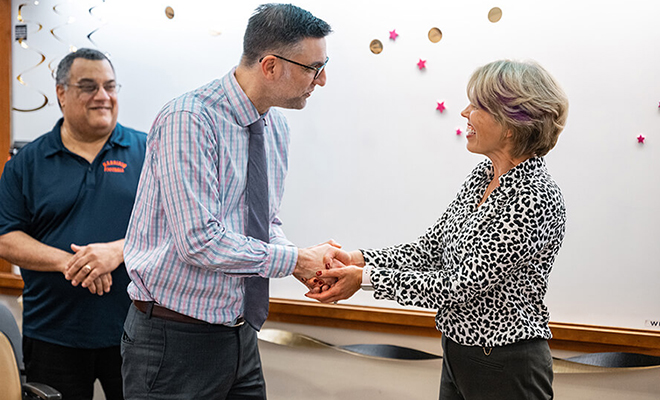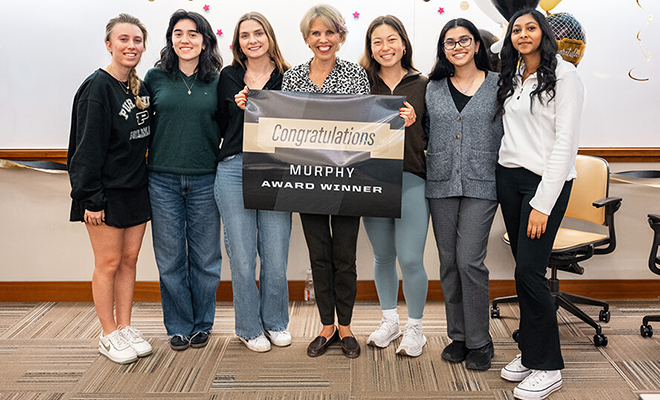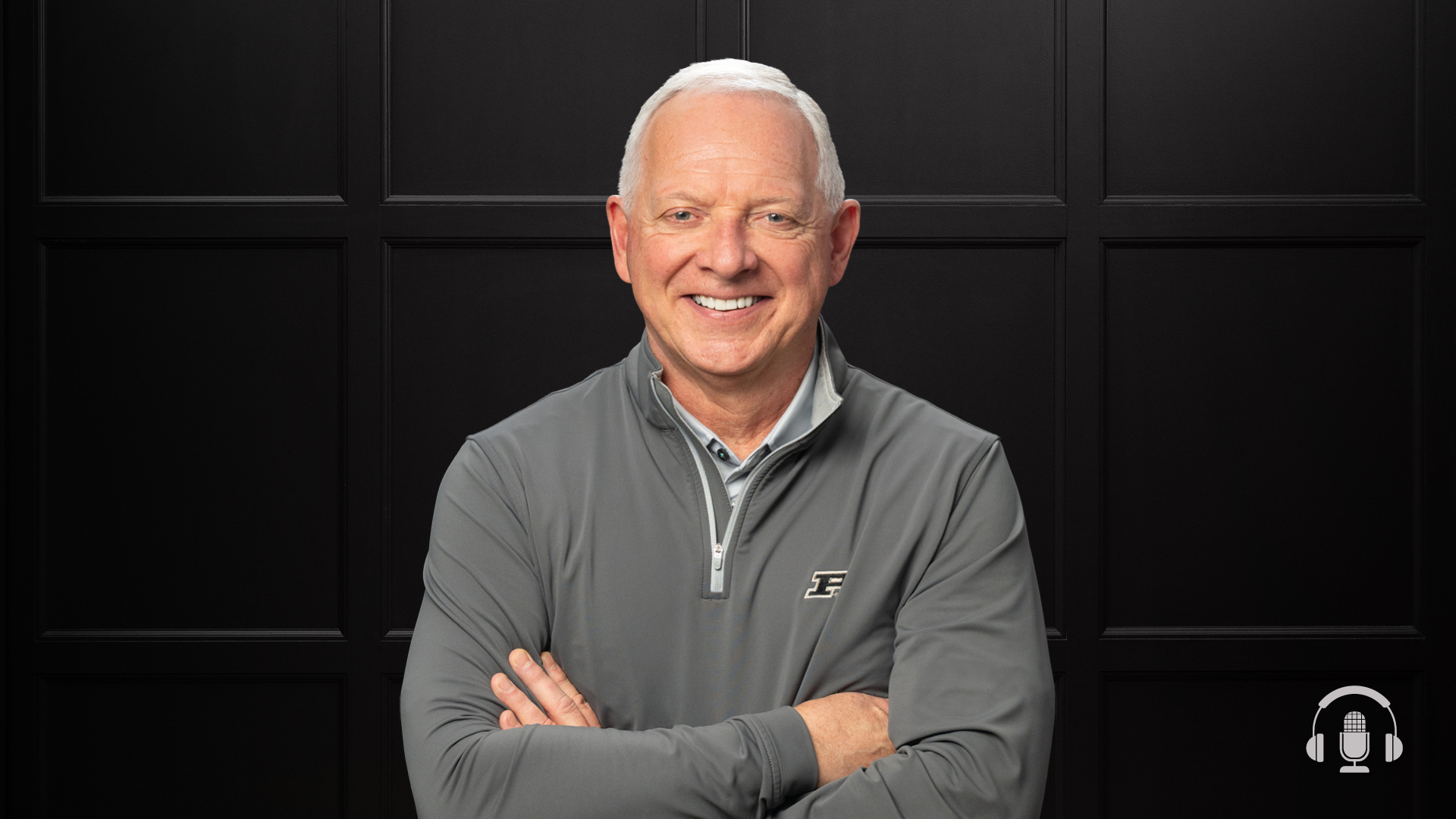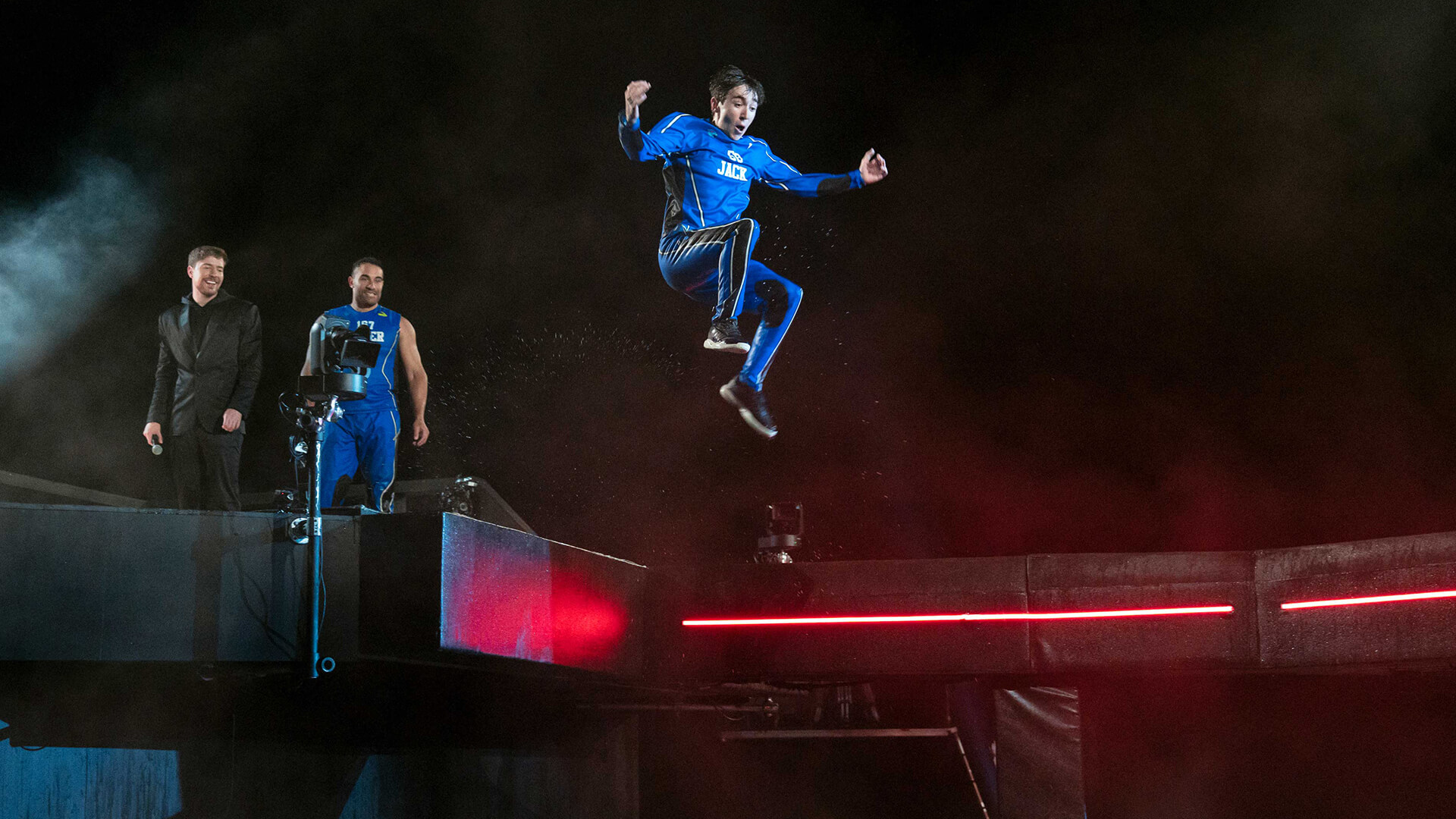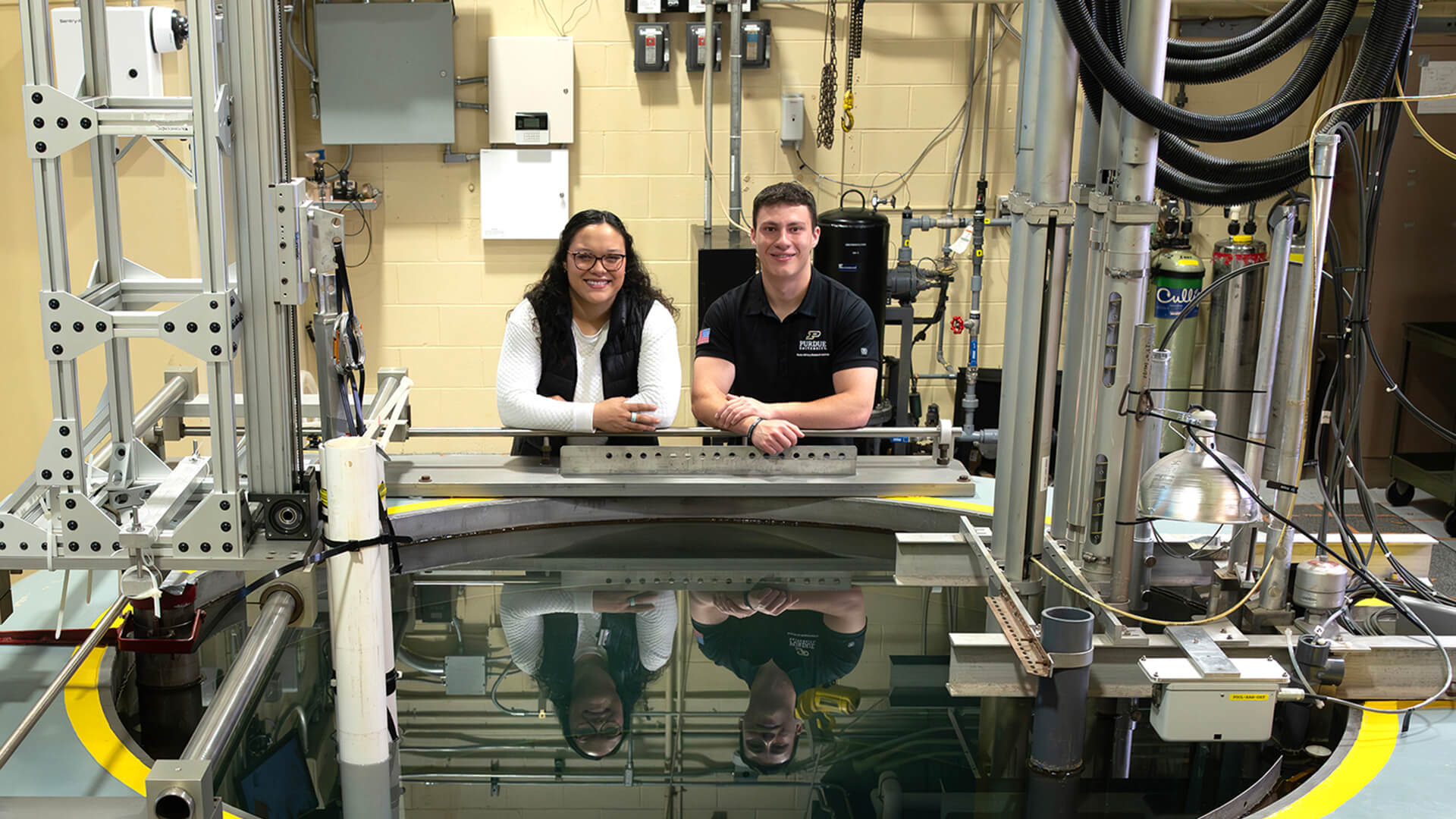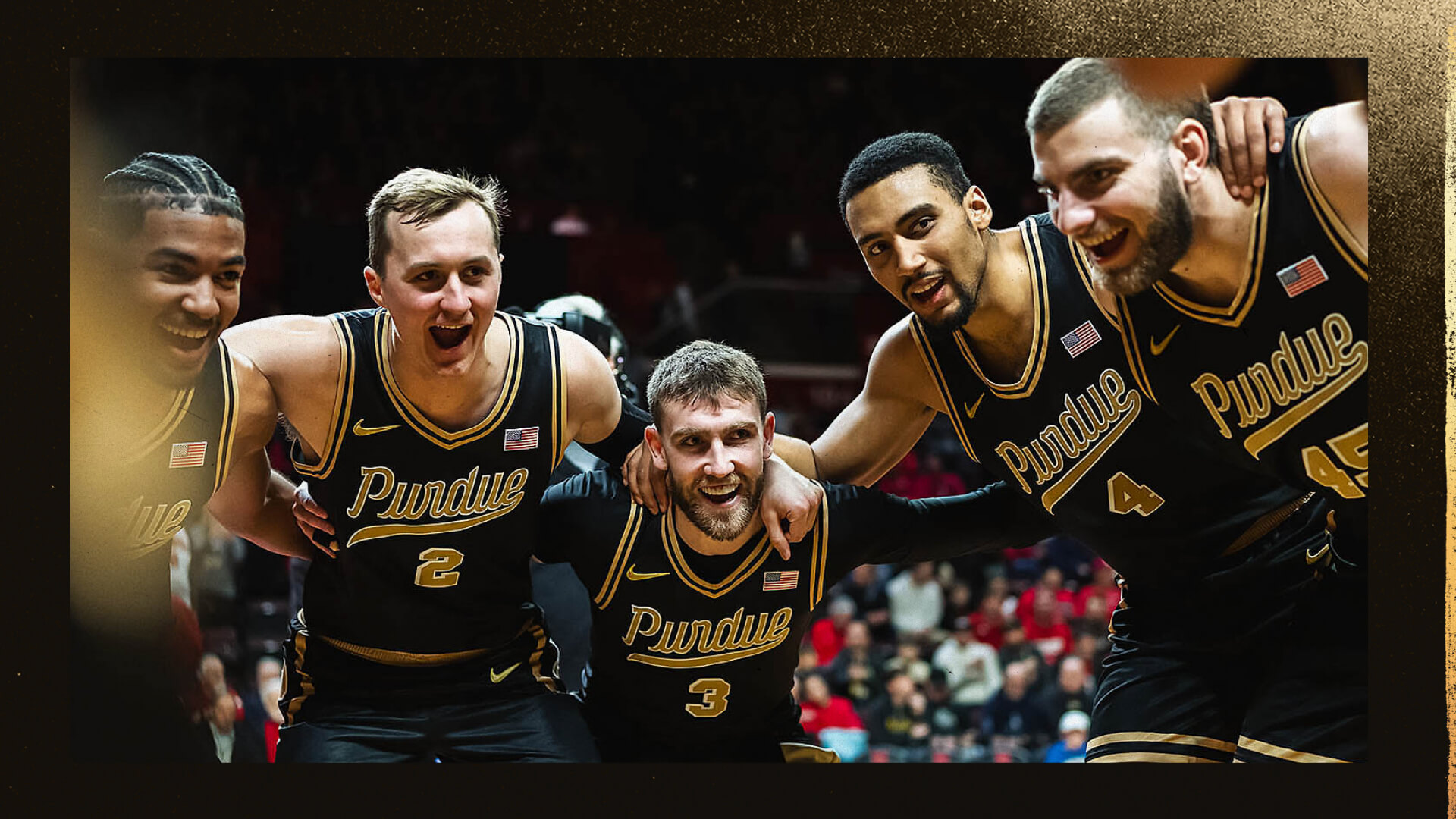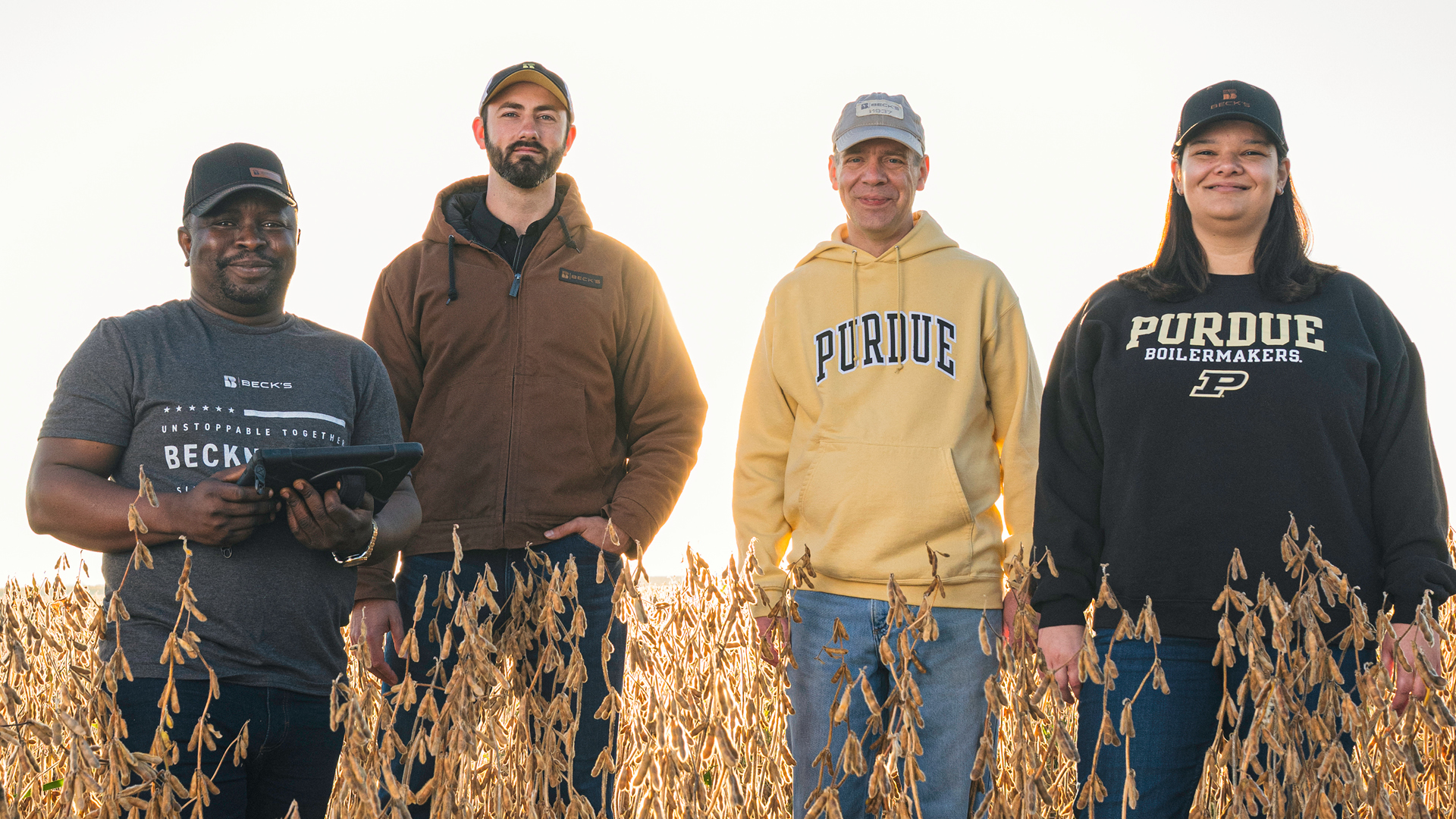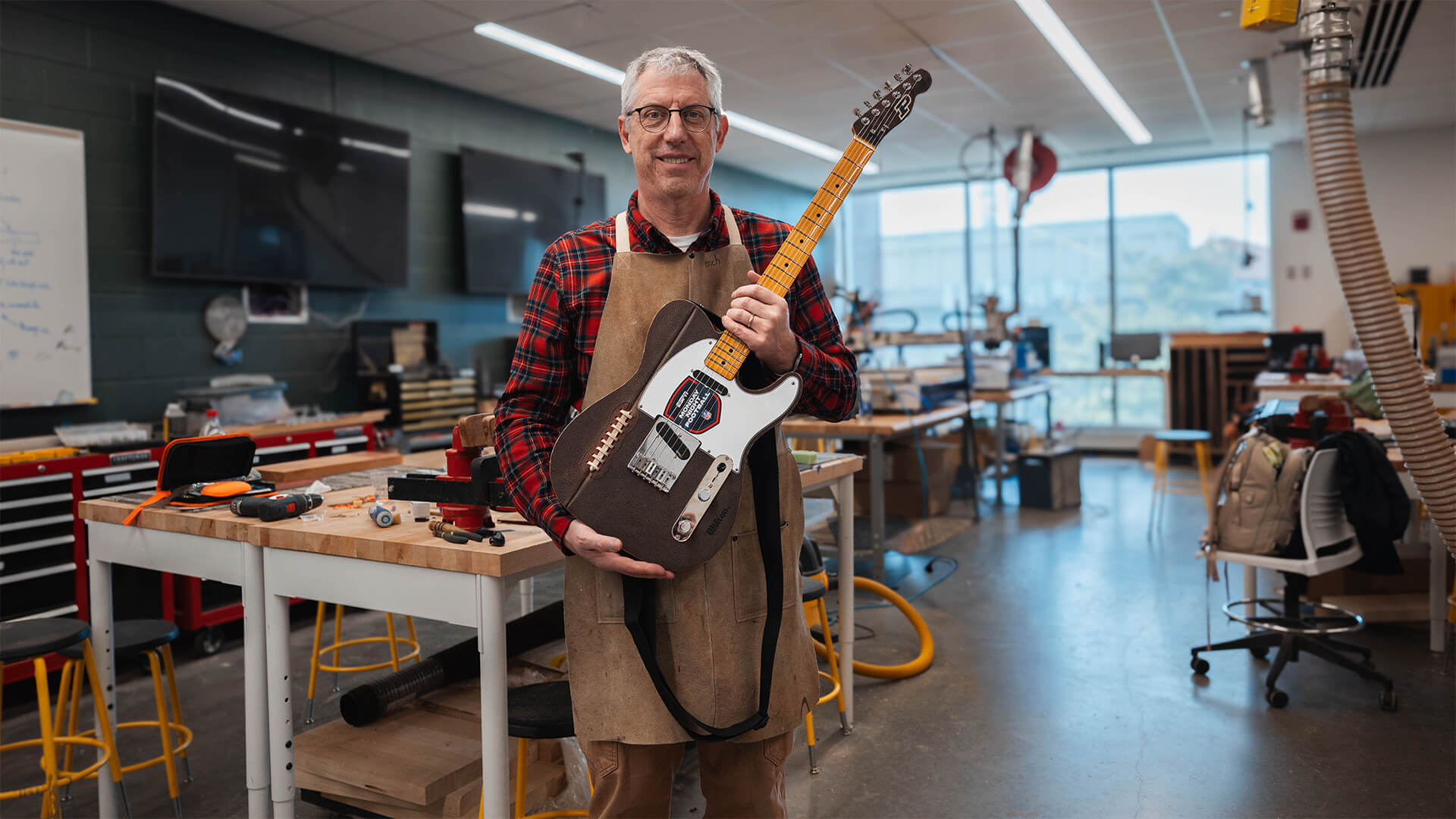Meet the 2025 winners of Purdue’s Charles B. Murphy Award
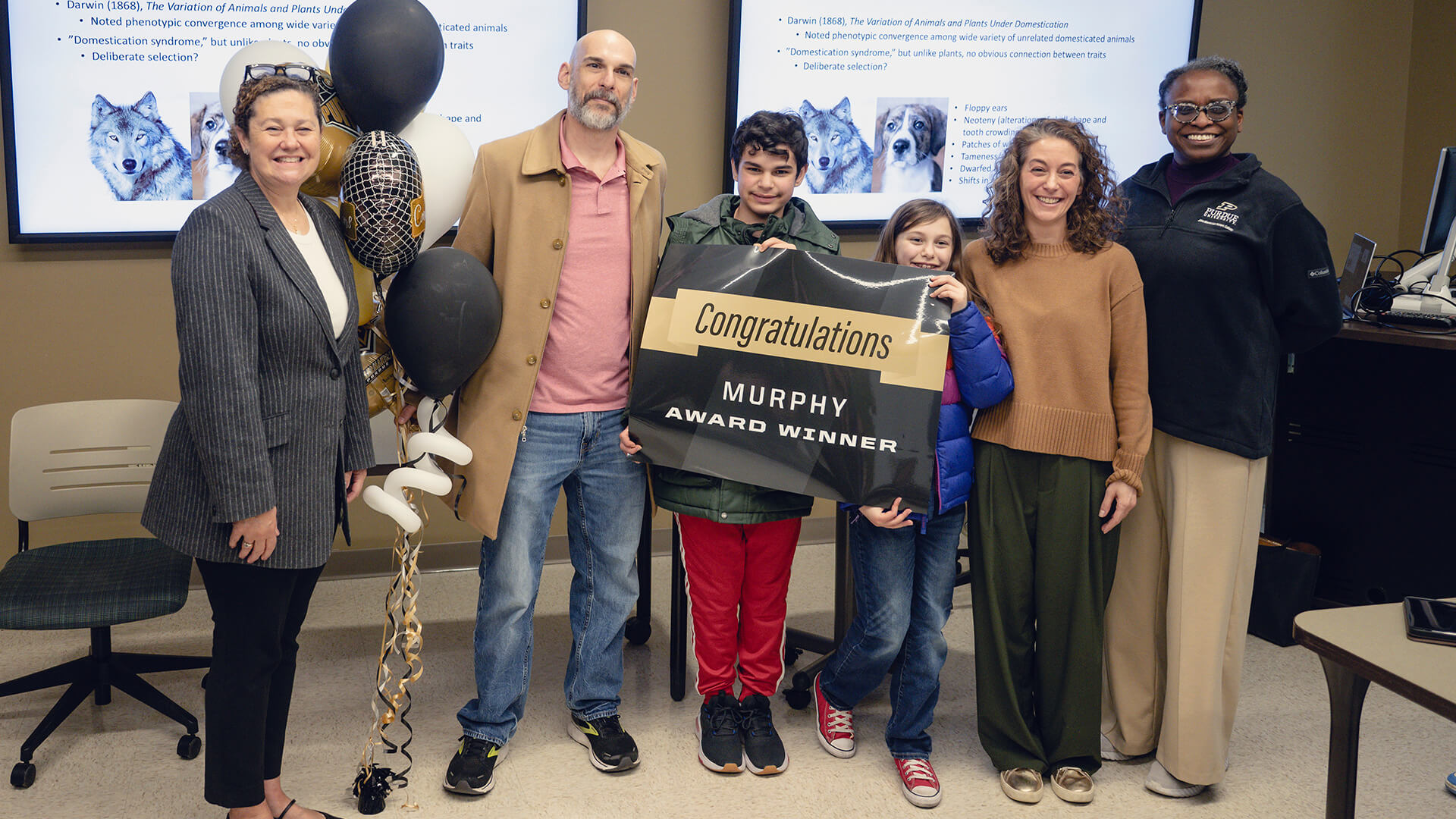
Charles B. Murphy Award winners are surprised in their classrooms with the news — here, 2025 honoree Liz Brite celebrates. (Purdue University photo/Kelsey Lefever)
Get to know the educators recognized with the university’s highest undergraduate teaching honor
Every spring up to five recipients are selected for the Charles B. Murphy Outstanding Undergraduate Teaching Award, named in memory of the Purdue history professor who taught from 1927-1970. Winners can come from any of the 12 colleges and schools on campus. This year the five winners serve different departments, but all share the same drive to deliver a world-class education.
Liz Brite
The John Martinson Honors College brings together ambitious students to learn from experts in a variety of fields. Ensuring that programs are serving this community — and that programs are continually improving — is no easy task. Liz Brite helps steer the Honors College as a clinical associate professor and associate head of academic affairs while also teaching in her courtesy faculty role in the College of Liberal Arts.
Brite’s background in anthropological archaeology has influenced her inventive approach to teaching. Courses on material culture studies inspire students to meaningfully assess their consumption habits. They can also take service-learning classes centered on international engagement, like the influential Beyond Afghanistan program that connects Boilermakers with peers across the globe. Each learning environment promotes self-reflection and the integration of multiple perspectives.
“She wanted to make sure I succeeded and made it clear that she was going to be a resource whenever needed,” says Jordan Reynolds, one of her students.
Faculty in the Honors College are supported by Brite’s dedication to their development. She meets with them every semester to identify opportunities to improve approaches and integrate their expertise. Along with mentoring, she’s created shared resources and advocated for perpetual growth. “Our 17 clinical faculty are from a broad array of backgrounds — historians, ecologists, political scientists, biologists,” she says. “We all really enjoy thinking creatively about what teaching and learning in the university space can be.”
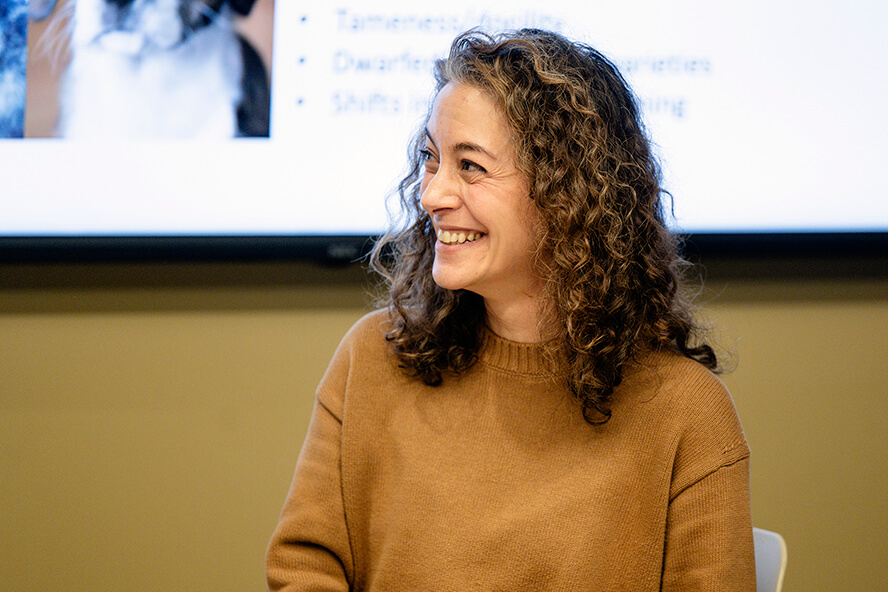
We all really enjoy thinking creatively about what teaching and learning in the university space can be.
Liz Brite
Clinical associate professor and associate head of academic affairs in the John Martinson Honors College with a courtesy faculty appointment in the College of Liberal Arts
Steve Hallett
How can Boilermakers grow to cultivate a better tomorrow? As an instigator of innovation and an influential force in agriculture, the university has a responsibility to prepare students to tackle today’s toughest challenges. Professor of horticulture Steve Hallett promotes solutions centered on environmental sustainability and food justice.
Through Hallett, Boilermakers learn to be agents of change — he teaches the analytical and creative skills needed to understand problems’ layered nuances. He and colleagues started the Purdue Student Farm and the Sustainable Food and Farming Systems degree program, pioneering hands-on experiences and an emphasis on small farms and local foods.
“Everyone has a role in solving our environmental problems,” Hallett says. “I think it’s important to be teaching agricultural concepts because we’re all implicated and involved.” He’s in the process of writing two books. “Ancient Wisdoms for Modern Crises” examines what Eastern philosophy can teach the modern Western world about climate change, the energy crisis, biodiversity loss and other ongoing issues. For the second book, he’s working with Andrew Flachs, associate professor of anthropology.
“He makes concepts interesting — ‘critical thinking’ isn’t just a buzzword in his classroom,” says student Madison Compher. “You look at things differently.”
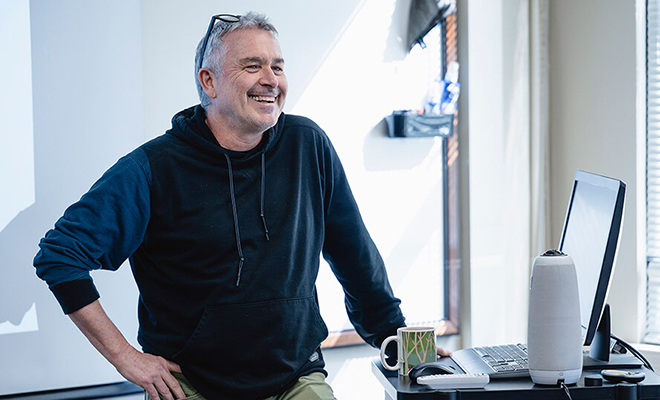
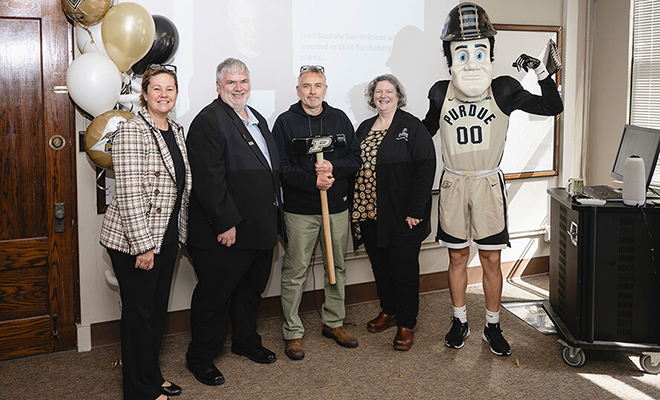
Richard Johnson-Sheehan
While connecting with students, mentoring teachers or writing influential textbooks, Richard Johnson-Sheehan blends innovation with empathy. The professor of English specializes in classical rhetoric and scientific, technical and medical writing. He knows communication is always changing and encourages learners to lean into it. Tools like generative AI won’t hinder creativity but will instead allow students to focus on imaginative thinking and authentic storytelling.
A PhD student, Paul Thompson Hunter, says, “He’s helped me develop strategies for succeeding as an educator, as an academic and as a person.”
At the heart of Johnson-Sheehan’s teaching philosophy is the desire to understand his students and create a learning environment where they feel encouraged to contribute to meaningful dialogue. Fostering trust and openness is built on small moments — asking them how they’re doing or what’s on their mind. He’s aware of the adversities they can face while pursuing their degrees, especially in recent years.
For Johnson-Sheehan, the Murphy Award is not only a personal honor but a testament to the collective effort his colleagues made while protecting the community against coronavirus. “Purdue faculty, lecturers and staff did heroic things during the pandemic,” he says. “If I could spread this award out among everyone, I’d love to do that.” The team’s resilience ensured students continued to receive quality instruction and support.
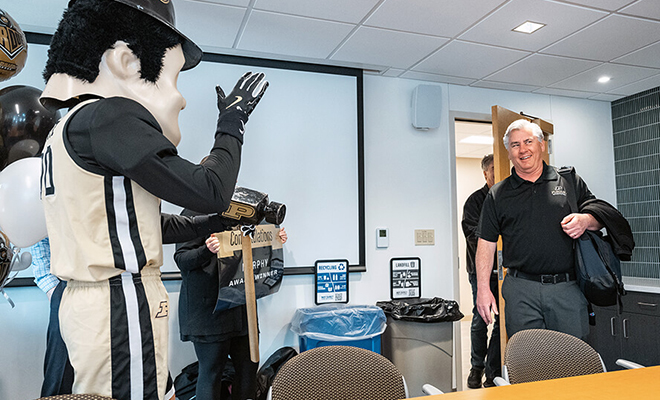
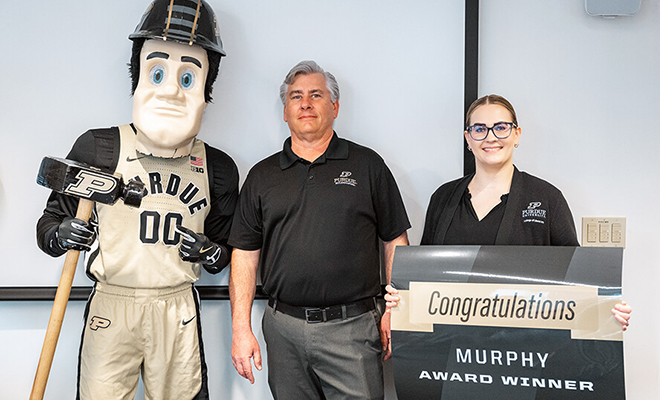
Scott Lawrance
Persistently prioritizing adaptability and connection has made Scott Lawrance a leader in his field. As a clinical professor in the Department of Health and Kinesiology and the athletic training program director, he has improved athletic training on campus and contributed to sports medicine at the national level.
“Health care is ever evolving, and we’re always at the forefront of what’s next here,” Lawrance says. “It’s about learning real-world applications and evidence-based practices.” Because knowledge is constantly changing and new groups of students are always different, he feels he’s never truly led the same class twice since he started teaching in 2010. He looks for ways to make courses dynamic, introduce new technologies and engage people creatively.
Laura Claussen, one of his students, says, “Not only is he a great teacher, but he makes sure to get to know all of his students on a personal level.”
Purdue has one of the country’s premier athletic training programs, with 12 Boilermakers in the National Athletic Trainers’ Association (NATA) Hall of Fame and a reputation for being at the field’s cutting edge. Lawrance is helping the next generation of athletic trainers everywhere through his roles with organizations like the NATA, Commission on Accreditation of Athletic Training Education and Indiana Athletic Trainers licensure board.
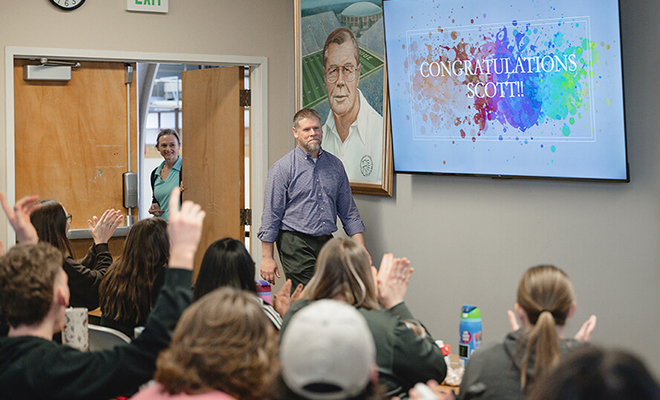
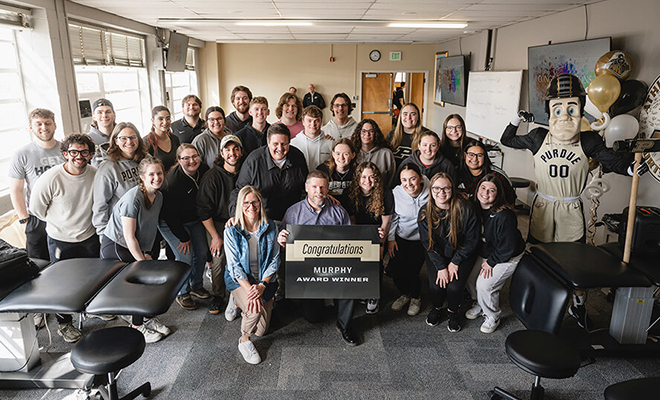
Cara Putman
Cara Putman wanted to earn this award at some point in her teaching career — she had no idea it would be the very first year she was eligible. “Continuous improvement is always top of mind for me, so I’m going to keep asking, ‘How do I get better?’” she says. Her dedication to going above and beyond shows in her roles as a clinical associate professor in the Mitch Daniels School of Business and director of the Brock-Wilson Center for Women in Business.
“She is beyond inspiring,” says student Grace Hyman. “When I was a prospective student, I decided I wanted to come here because of her.”
Energetic and engaging, Putman draws on her background in law and communication to serve the Purdue community. For students, she emphasizes pragmatic, interactive lesson plans to make abstract concepts more relatable. For faculty, she strives to share resources across campus that uplift everyone and promote development opportunities.
One of the programs Putman loves is Purdue’s Center for Instructional Excellence, an organization that helps educators excel. “I really encourage faculty to take advantage of every opportunity,” she says. “We have so much to gain from each other’s knowledge, and I want to help partners on campus with what I’ve learned myself.”
